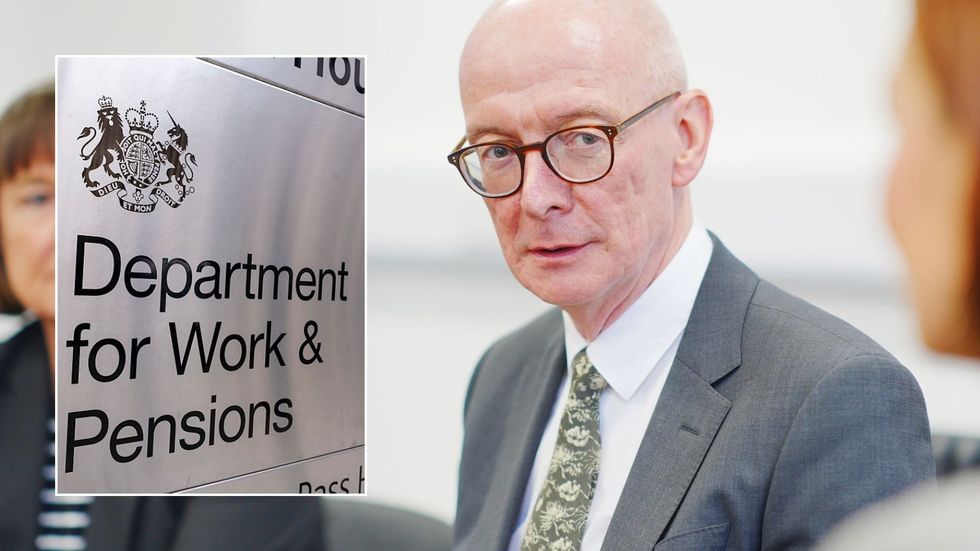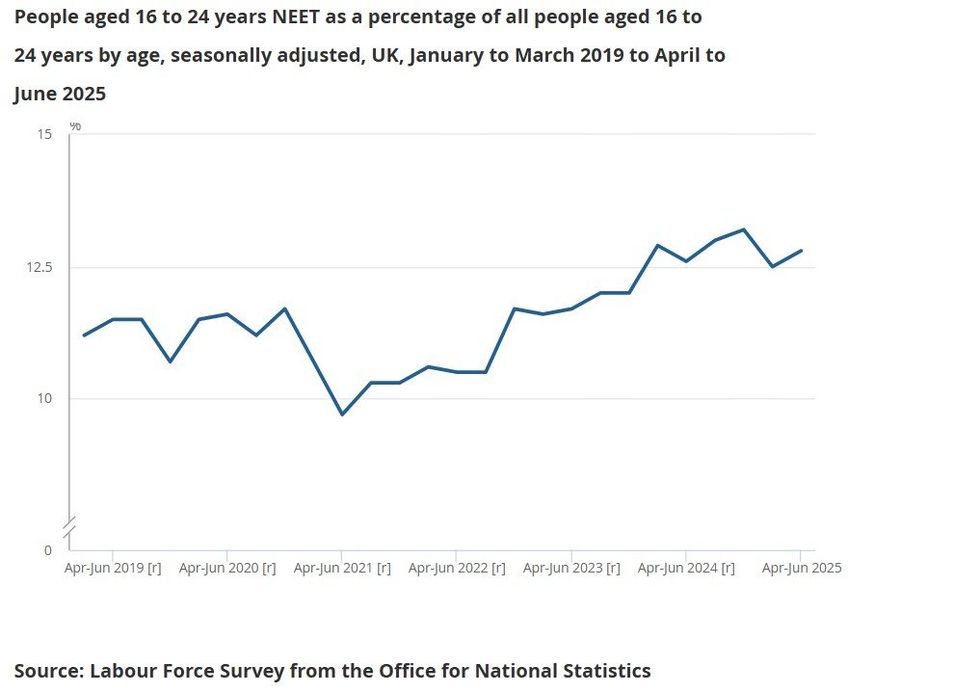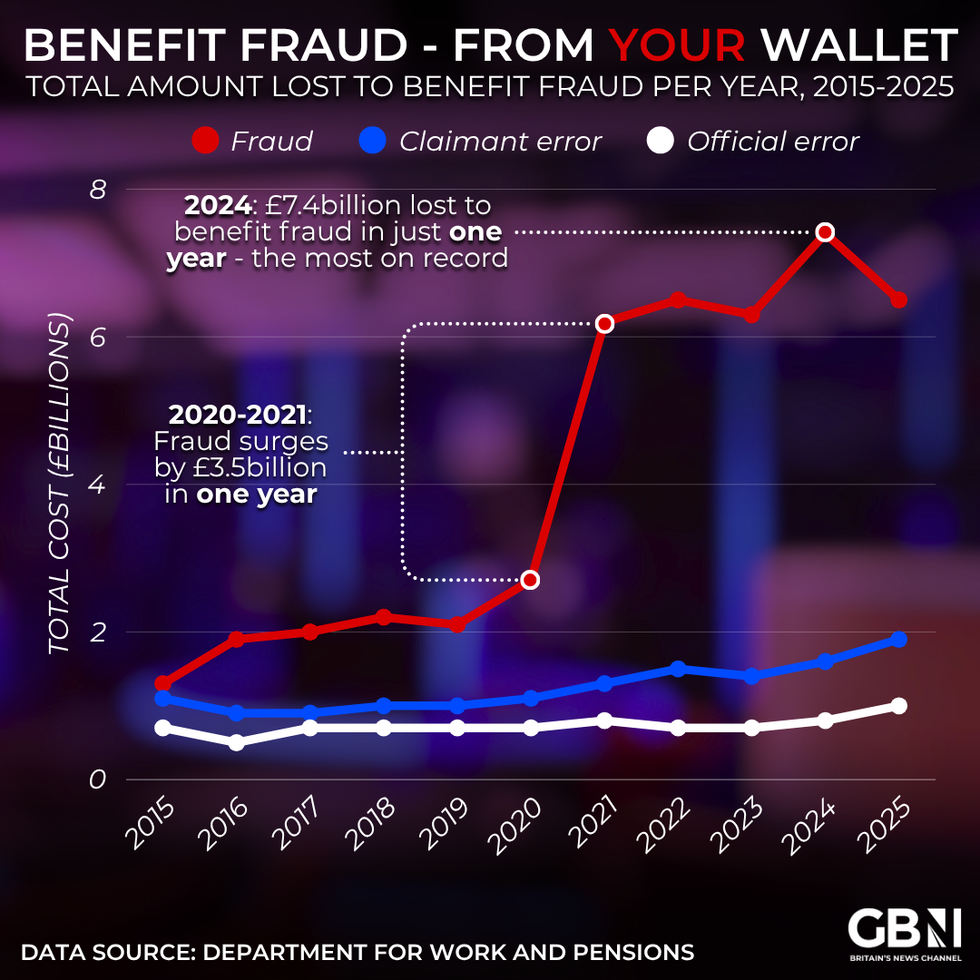DWP launches review into work-shy young Britons after benefit bill U-turn: 'We cannot stand by!'

'Just not true!' GB News guests break out in heated benefits row |
GB NEWS

DWP minister Pat McFadden has reiterated the Government's commitment to get more young people contributing to the economy
Don't Miss
Most Read
The Department for Work and Pensions (DWP) is preparing to launch a review into work-shy younger Britons in an effort to bring down Britain's ballooning benefits bills.
DWP minister Pat McFadden has revealed plans for an independent investigation examining the growing numbers of young people who find themselves outside work or education, describing the situation as a "crisis of opportunity" requiring urgent intervention.
The Work and Pensions Secretary appointed Alan Milburn, who previously served as health secretary under Tony Blair, to lead the comprehensive review into youth inactivity.
This investigation will examine reforms to both health and welfare systems, placing particular emphasis on understanding how mental illness and disability affect young people's ability to engage with education or employment opportunities.

The DWP has launched a review into why young people are not entering the workforce
|GETTY / PA
Official statistics paint a concerning picture, with approximately one million individuals between 16 and 24 years old currently not in education, employment or training, otherwise known as NEET.
This represents roughly one in eight people in this age bracket. ONS data reveals that more than 25 per cent of these young people identify long-term illness or disability as obstacles preventing them from working or studying.
These figures also show an upward trend in health benefit claims among this demographic, highlighting the growing intersection between youth unemployment and health challenges facing Britain's younger generation.
The review's initial conclusions will be delivered to ministers by spring, with a comprehensive report expected by summer next year.

How many young people are out of work?
|ONS
Mr McFadden expressed his determination to create a framework that helps young people not merely secure employment but construct meaningful futures, stating: "When young people succeed, Britain succeeds."
The Government anticipates the review will reduce the financial burden of youth unemployment whilst creating a more viable social security structure.
However, Mr McFadden emphasised the urgency of preventing an entire generation from becoming trapped in a cycle of benefits dependency without employment opportunities or aspirations for the future.
Mr Milburn noted the need for immediate intervention, declaring: "We cannot stand by and let a generation of young people be consigned to a life without employment or prospects."
The review comes after Prime Minister Keir Starmer abandoned proposals to tighten Personal Independence Payment (PIP) eligibility earlier this year, facing potential defeat in Parliament.
This reversal created an approximately £5billion gap in government finances, prompting Mr McFadden to pursue alternative welfare reforms since assuming his role in September.
When questioned about mental health diagnoses among youth, Mr McFadden told the Sunday Times: "I don't believe there should be an automatic link between diagnosis and benefits."
Tom Barrett, debt and benefits Expert at caba, previously warned that 150,000 people are at risk of being pushed into poverty under the Labour Government's current DWP reforms.
 Benefit fraud - from your wallet: Total amount lost to benefit fraud per year | GB NEWS
Benefit fraud - from your wallet: Total amount lost to benefit fraud per year | GB NEWSHe shared: "The news that 150,000 people in the UK could still be pushed into poverty is concerning. While recent concessions are a step in the right direction, too many individuals and families already facing hardship risk being pushed further into poverty.
"For many, changes to health-related Universal Credit or stricter eligibility for disability support could mean making impossible choices between paying rent, buying food, heating their home, or falling deeper into debt.
"Efforts to improve employment outcomes are welcome, but they must be accompanied by strong financial safeguards since short-term funding may not be enough to prevent long-lasting hardship.
"During this time, it’s important to check what benefits you may be entitled to and benefits advisers can help you with this. It may also be worth seeking independent financial advice to help you make the most of your money, and if you're managing debt, prioritising the repayment of high-interest debts may be the right approach."
More From GB News










